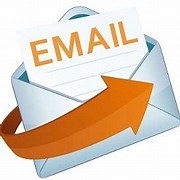Emails were designed to be quick, simple and clear. Are
yours?
It might be time to ask yourself if your emails are sending
the wrong message.
Have you ever sent an email in the heat of the moment? Or
received an email so long that you stopped reading it halfway through? Avoid
unwittingly annoying your colleagues or clients by following these rules of
email etiquette.

Do:
1. Pay attention to the subject line. Avoid general words
like ‘Hi’, ‘FYI’ or ‘Touching Base’, and instead write a clear concise subject
line that reflects the body of the email, such as ‘Meeting date changed’.
2. Limit your emails to a few short paragraphs. “If you
routinely send long, wordy emails, it’s likely that some of your recipients
will start tuning out,” says workplace adviser and consultant Alison Green,
author of the blog Ask a Manager. “If you need to communicate a large
amount of information, email probably isn’t the way to do it.”
3. Make it clear what you’d like the recipient to do. Most
of us receive an enormous number of emails, so help the recipient know exactly
what you want them to do, says Green. Do you need information or input? Do you
want them to take a particular action? Or are you just updating them, so you
don’t require any action?

Don’t:
1. Hit “Reply all”. Unless the whole group needs to read
your response – such as an ongoing group discussion – avoid using ‘Reply All’
advises Green. “More than 20 years after email came into popular use, offices
are still battling epic reply-all failures that flood people’s mailboxes,” she
says.
2. Use lots of CAPS and exclamation marks!! Using capital
letters can be intimidating to the recipient, as it sounds like you’re yelling,
while lots of exclamation marks at the end of sentences can come across as
overly emotional or immature.
3. Get angry or snarky in an email. Email isn’t well suited
to conflict, as it’s easy for your tone to come across much more harshly than
it would in person, says Green. If you sense yourself becoming frustrated, it’s
best that you back away from your email and have a real conservation.